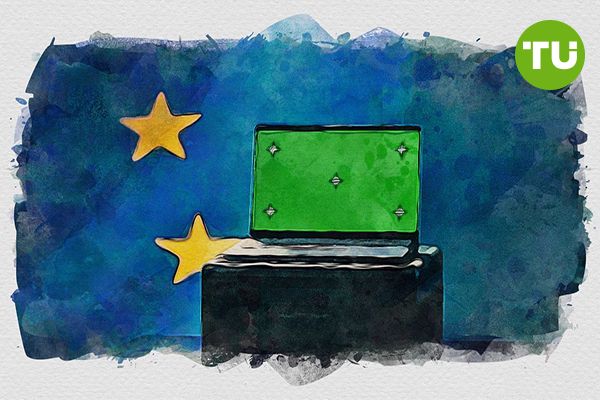Europe tech awakening: AI, blockchain, and the path to digital leadership
 Europe is accelerating its digital transformation
Europe is accelerating its digital transformation
For years, Europe’s technology landscape has been overshadowed by the rapid, high-stakes innovation hubs of Silicon Valley and China. But that narrative may finally be changing.
The launch of Le Chat—a cutting-edge AI chatbot developed by Mistral AI—has reignited discussions about Europe’s potential to become a global tech powerhouse. Unlike previous European innovations that remained confined to research labs, this chatbot has achieved significant mainstream traction, even surpassing expectations in adoption rates.
Le Chat can generate text, conduct real-time searches, process documents, and create images. According to experts, it’s not just an alternative to OpenAI’s ChatGPT— it’s 13 times faster, processing an astounding 1,000 words per second while maintaining fluency in all major European languages.
Although it didn’t cause the same financial ripples as China’s DeepSeek, its rapid success in the Google Play Store has made waves. Within days of its release, French President Emmanuel Macron announced a €100 billion AI investment initiative, and Mistral secured partnerships with major players like Stellantis, Cisco, and Helsing.
Loading...
Europe’s shift from regulatory caution to tech ambition
For decades, Europe has been seen as a regulatory stronghold rather than a leader in technological innovation. While the continent played a foundational role in shaping the digital world, its consumer tech ecosystem has often been stifled by bureaucratic constraints. However, a fundamental shift is underway, signaling Europe’s growing ambition to become a global technology powerhouse.
The European Commission’s five-year innovation plan and large-scale investments in key industries mark a transformation in approach. Europe is actively fostering high-tech growth through initiatives like Airbus’s competitive push in the space industry, state-backed funding for startups, and the creation of advanced innovation hubs. Instead of solely focusing on oversight, governments are now positioning themselves as facilitators of technological progress.
Digital decade vision
At the heart of this shift is the Digital Decade strategy, a comprehensive vision to achieve digital transformation by 2030. This plan aims to establish universal gigabit Internet, strengthen Europe’s semiconductor industry to claim a 20% global market share, expand funding for startups, and ensure seamless digital public services through a trusted digital identity framework.
Blockchain and artificial intelligence (AI) play a critical role in achieving these ambitions. European policymakers have acknowledged that trust, transparency, and security are essential in a digital economy. As a result, blockchain solutions are being integrated into identity verification systems, financial services, and supply chain management. The European Investment Bank (EIB) has already launched tokenized bonds worth hundreds of millions of euros, while regulatory sandboxes are fostering innovation in decentralized technologies.
Despite concerns that regulations such as the Markets in Crypto-Assets (MiCA) framework would limit growth, Europe has successfully maintained a balance between oversight and innovation. By proactively shaping the regulatory environment, European institutions are setting the stage for sustainable technological leadership.
AI and blockchain: A perfect match for Europe’s regulatory framework
One of the key provisions of the EU’s AI Act is its explainability requirement, ensuring that AI decision-making remains transparent and interpretable for users, regulators, and those affected by AI-driven processes. This is especially critical in sectors such as finance, healthcare, legal services, and human resources, where algorithmic decisions carry significant weight.
Loading...
Public blockchains could play a transformative role here. By hashing decision logs onto an immutable ledger, companies can provide regulators with verifiable, tamper-proof records of AI model decisions.
Europe’s moment to lead
France’s success with Le Chat proves that European AI can rival the best in the world. Scalable blockchain solutions are already integrated into key financial and regulatory frameworks. The combination of AI and blockchain is particularly well-suited to Europe’s strengths—precision, security, and regulatory rigor.
For the first time in decades, Europe is not just reacting to tech trends—it is actively shaping them. If the continent fully embraces this momentum, the 2030s could be the decade when European innovation leads the global stage, rather than playing catch-up.













































































































































